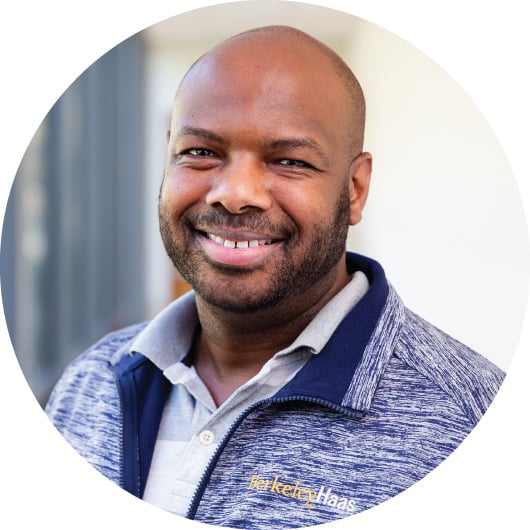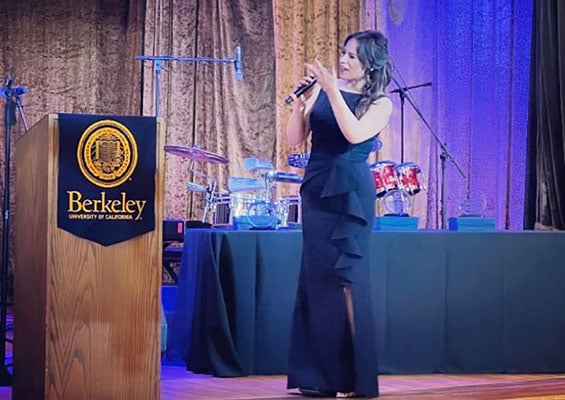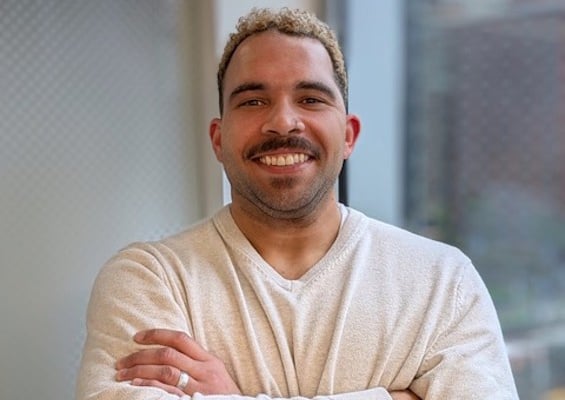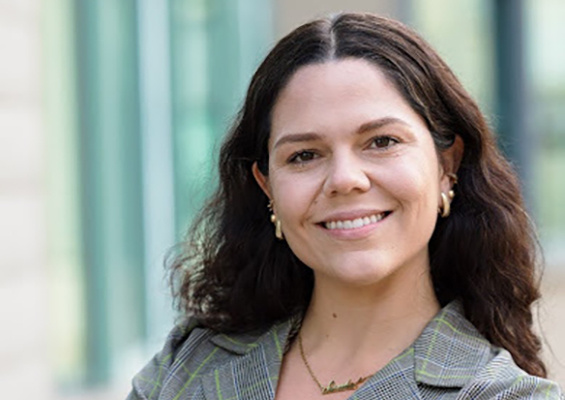Analexis Glaude knew early on that she wanted to be a professor and a role model for others and knew she would have to find the right area of interest. She studied psychology as an undergrad at Cal-Poly Pomona, with an emphasis on industrial-organizational psychology. Then, an internship revealed how closely her interests aligned with business. In 2022, she started her first year of study for a doctorate in Management of Organizations (Micro), one of eight PhD specializations offered at Berkeley Haas. “Having grown up in the Sacramento area, Berkeley was familiar. Now, it feels like home,” she said. “I love the vibe here.”
While Analexis expects her student days at Berkeley Haas to last five years—two years of intense coursework, followed by a period researching, writing, and defending her dissertation—she is excited about a couple of the interim milestones.
She should receive her Master’s degree in 2024, after two years of immersing herself in statistics, reading the literature, and working on projects. “That will feel like a real accomplishment in itself,” she said. Even more, she eagerly anticipates starting her teaching career as a TA or GSI at Haas. “I have had so many outstanding teachers and mentors. I can’t wait to give back the support and inspiration I have received,” she said.
I am excited at the idea of teaching and learning simultaneously.
For Analexis, both the teaching and the researching aspects of her planned career resonate with the Student Always defining leadership principle at Haas. “It’s a cycle to me: teaching others, but also being willing to continue to learn. As a doctoral student, I am excited at the idea of teaching and learning simultaneously,” she said. “Even experts continue to learn new things in their fields through research and experience. It’s important to realize that the field of academia is always changing. New findings and perspectives can lead to breakthroughs.”
So far, Analexis’ biggest challenge has been conquering “R,” an open-source programming language broadly used in statistics, data analysis, and machine learning. Having arrived at Berkeley Haas with little to no background in coding or programming, the learning curve has been steep and the results gratifying. She credits the workshops at the D-Lab and assistance from Assistant Professor Sa-Kiera Tiarra Jolynn Hudson for helping her make the initial leap into R and is learning by doing. But she cautioned, “my best advice to prospective PhD students is to sharpen your coding skills and data analysis proficiency as soon as you know you will be entering the program.”
She is honing those new-found data analysis skills on her independent study project under the supervision of Sa-Kiera, who teaches Diversity, Equity, Inclusion, and Belonging in the full-time MBA program. Funded with a research grant from the Center for Equity, Gender and Leadership (EGAL), Sa-Kiera and Analexis are examining how different domains—life and physical sciences and tech, for example—are perceived in terms of how creative and innovative people need to be in order to succeed. “Although people tend to use the two terms interchangeably, creativity and innovation are different things,” she said. “We hope to run additional studies to apply this to hiring, firing, and promotion in the workplace and look at how race and gender may play a part in this.”
“As a first-year PhD student, I am very grateful that EGAL provided me with the opportunity to begin my first research project,” she said. In addition to funding, EGAL is a community of its own. Its Research Gatherings bring together faculty and students to present their research. Analexis called it “amazing to have a resource like EGAL available. They provide opportunities for research on very important topics to be shared and conducted. That’s really valuable.”
And while she is building her networks at Berkeley Haas, Analexis is studying friendship formation. She is part of a team evaluating different friendship types: work-only friends, personal friends, and crossover friends (who are both work and personal friends). Another topic at the intersection of psychology and business.
After encountering no teachers of color in her middle and high school years, Analexis values the greater diversity and solidarity at Berkeley Haas. The diversity extends to the other two members of her Management of Organizations (Micro) cohort who bring their own backgrounds to Berkeley Haas: one is from Singapore; the other is a parent. “We all reached Berkeley Haas by different paths and bring our own perspectives to our work,” Analexis noted. “From my professors and cohort to the people at EGAL, there is real solidarity here. We get along well and share a common sense of wanting—and putting the work in to achieve—equity.”
Interested in making an impact through your leadership? EGAL educates future leaders on how to intentionally use their power to drive positive change and build an inclusive and equitable world.









